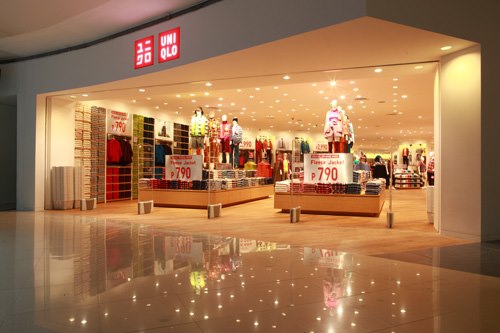SUMMARY
This is AI generated summarization, which may have errors. For context, always refer to the full article.
MANILA, Philippines – Maintaining a green lifestyle doesn’t only involve food, transportation and gadgets, it involves the clothes we wear too.
Japanese fashion brand Uniqlo and Fast Retailing Group, its mother company, reminded us of this last January 9, when it announced its commitment to eliminate all hazardous chemicals from its global supply chain and products by 2020, in response to Greenpeace’s global “Detox” campaign.
“Uniqlo recognises clean water as a critical global issue, and is proud to join Greenpeace in its campaign to eliminate hazardous chemical use,” said Yukihiro Nitta, Fast Retailing Group executive officer and executive in charge of corporate social responsibility.

Detoxify
The Detox campaign calls on fashion brands to completely stop discharging hazardous chemicals from their manufacturing process by 2020. Specifically, the campaign targets perfluorinated chemicals (PFCs), artificial chemicals widely used in the fashion industry for their non-stick and water-repellent properties. They are often applied to leather products to make them stain- and water-proof.
In an effort to protect communities near facilities of manufacturers, the campaign also demands that fashion brands require their suppliers to disclose the release of harmful chemicals to local residents.
Fast Retailing has promised to disclose data of harmful chemical release from at least 80% of their suppliers and their facilities by the end of 2013. This will inform communities living near the facilities about the chemicals being released into their environment.
Fast Retailing Group’s commitment involves the rest of its fashion brands: Comptoir des Cotonniers, Princesse tam.tam, g.u. and Theory. Together with Uniqlo, they have over 2,000 stores all over the world.
In the Philippines, Uniqlo has opened 2 branches, one in SM Mall of Asia and another in SM North EDSA.
A fashion commitment
Including Fast Retailing, Greenpeace has gotten 12 global corporations to detoxify their supply chain and products since it launched its campaign in 2011. It is the 8th to give a concrete date by when it will have eliminated PFCs.
Greenpeace Japan Toxics Campaigner Hisayo Takada praised Uniqlo for “its commitment to open up the notoriously murky world of textile manufacturing to the public.”
He added, “Other brands such as Calvin Klein, Victoria’s Secret and G-Star Raw also need to listen to their customers and urgently eliminate all hazardous chemicals from their supply chain and products.”
In the Philippines, Greenpeace is calling on the Department of Environment and Natural Resources (DENR) to require companies to disclose their use of hazardous chemicals through a Pollutant Release and Transfer Register (PRTR) policy. Once a database of hazardous chemicals is compiled, the department can identify priority chemicals for elimination and begin a plan to eliminate these chemical discharges.
Environmentalists call on consumers to be more responsible with their purchases and to patronize brands that are actively bringing down their discharge of harmful chemicals.
Uniqlo’s move proves once and for all that green choices are sometimes the simplest. They start with how you choose your clothes. – Rappler.com
Add a comment
How does this make you feel?
There are no comments yet. Add your comment to start the conversation.